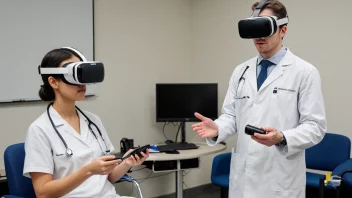As the field of genomics continues to advance rapidly, its potential to revolutionize disease prevention becomes increasingly evident. By analyzing the genetic makeup of individuals, researchers and healthcare professionals can identify predispositions to various diseases, leading to more tailored prevention strategies. This article explores five significant ways genomics is shaping the future of disease prevention, making healthcare more personalized and proactive.
1. Understanding Genetic Predisposition
One of the most promising aspects of genomics is its ability to reveal genetic predispositions to diseases. Through genetic testing, individuals can learn about their risk factors for conditions such as:
- Heart disease: Certain genetic markers can indicate a higher risk of cardiovascular issues.
- Cancer: Testing for mutations in genes like BRCA1 and BRCA2 can help assess the risk of breast and ovarian cancer.
- Diabetes: Genetic variants may signal a higher likelihood of developing type 2 diabetes.
By understanding these predispositions, individuals can make informed lifestyle choices and engage in preventive measures.
2. Tailoring Preventive Strategies
Genomics allows for a more personalized approach to disease prevention. Healthcare providers can develop tailored strategies based on an individual’s genetic profile. For instance:
- Dietary recommendations: Genetic variations can influence how individuals metabolize certain nutrients, leading to personalized nutrition plans.
- Exercise regimens: Some people may respond better to specific types of physical activity based on their genetic makeup.
- Medication responses: Genomic information can help predict how a patient will respond to certain medications, minimizing adverse effects.
This tailored approach increases the effectiveness of preventive measures and enhances overall health outcomes.
3. Early Detection of Diseases
Genomics plays a crucial role in the early detection of diseases, which is vital for effective prevention and treatment. With advancements in genomic technologies, screening for genetic markers associated with various diseases has become more accessible. For example:
- Newborn screening: Genetic tests can identify metabolic disorders in infants, allowing for early intervention.
- Cancer screening: Liquid biopsies can detect circulating tumor DNA, enabling the identification of cancers at an earlier stage.
- Chronic disease monitoring: Regular genomic assessments can track changes in risk factors over time, prompting timely interventions.
Early detection significantly improves the chances of successful treatment and can even prevent diseases from developing.
4. Advancements in Gene Editing
The rise of gene editing technologies, such as CRISPR-Cas9, has opened new avenues for disease prevention. These tools enable scientists to modify genes associated with specific diseases, offering potential solutions for genetic disorders. For instance:
- Correcting genetic mutations: Gene editing can potentially correct mutations that lead to hereditary diseases, such as cystic fibrosis.
- Preventing disease transmission: Gene drives can be used to reduce the population of disease-carrying organisms, such as mosquitoes that transmit malaria.
- Enhancing immunity: Researchers are exploring ways to edit genes to boost the immune response against infectious diseases.
While still in the experimental stages, these advancements hold great promise for preventing diseases before they manifest.
5. Ethical Considerations and Public Awareness
As genomics continues to evolve, it raises important ethical considerations regarding privacy, consent, and access to genetic information. Ensuring that the public is informed about these issues is crucial. Key points include:
- Informed consent: Individuals must understand the implications of genetic testing and how their information will be used.
- Equitable access: Efforts should be made to ensure that genomic technologies are accessible to diverse populations, preventing disparities in healthcare.
- Public education: Increasing awareness about genomics and its potential benefits can empower individuals to take charge of their health.
Addressing these ethical concerns will be essential for the responsible integration of genomics into healthcare.
In conclusion, genomics is poised to play a transformative role in disease prevention through understanding genetic predispositions, tailoring preventive strategies, enabling early detection, advancing gene editing technologies, and addressing ethical considerations. As we continue to explore the potential of genomics, it is vital to balance innovation with responsibility, ensuring that all individuals can benefit from these advancements in healthcare.






